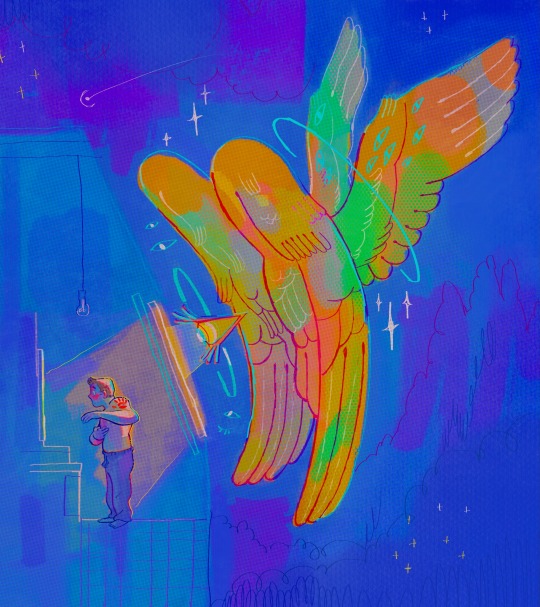Text
Тrue appearance.

ok, I'm testing a new graphics tablet and gradually returning to stable drawing
3K notes
·
View notes
Photo








6.05 - Live Free or Twihard
You’re pretty…
2K notes
·
View notes
Text
I think there’s a connection between “The Boys” and “Supernatural,” which you had created. I like to consider what different shows say about the American story, and I actually spoke to [“Supernatural” co-star Misha Collins] a little bit about this at a Comic-Con a long time ago. He pointed out that the show’s overall theme isn't necessarily the vision of good and evil that the post-World War II version of the American story is deeply hooked into, that it’s mainly about American masculinity. I would love your perspective on whether there's any kind of continuum there, in terms of what keeps drawing you to these stories and what they might say overall about how America sees itself.
Kripke: I mean, look, we're all products of our experiences and our upbringing and the media we consumed. I'm a sucker for [Steven] Spielberg, [George] Lucas, you know — “Raiders of the Lost Ark,” “Star Wars,” the million subpar copies that are so deeply in my brain. Those were always the stories I gravitated towards.
But as I got older and a little more experienced as a writer, I learned quickly that character psychology is really everything, at least for me. It's how I make sense of the stories. And when you start breaking down the psychology of the traditional masculine hero, like for real — when you are like, “OK, what makes that person like that?” – you quickly reach the conclusion that they are so f**ked-up, so wounded and so broken. It's just natural. You just wouldn't run into that burning building and be making those quips and . . . diving off a skyscraper like John McClane. You’re just not doing that if you're not, like, a deeply f**ked-up person. And that became really interesting to me.
During “Supernatural” — probably a little more Dean than Sam, because Sam was always meant to be like a regular guy. But Dean, the notion was like, “OK, but if you were Han Solo for real, like, how f***ed up are you to end up in that position, making those choices?” Then we started playing that, and Jensen [Ackles] was really good at it. And that became really interesting to me.
YOU DON'T SAY?!
160 notes
·
View notes
Text









𝗍𝗂𝗅𝖾𝗌 𝖻𝗒 𝖼𝗁𝖺𝗋𝗅𝗈𝗍𝗍𝖾 𝗌𝖺𝗅𝗍
𝖨𝗀: 𝖼𝗁𝖺𝗋𝗅𝗈𝗍𝗍𝖾_𝗌𝖺𝗅𝗍_
12K notes
·
View notes
Text
still amazes me that by season 45 or whatever, Supernatural was being exclusively watched by delusionally hopeful women with flamingo-salinity tolerance for bad writing and the creators still couldn’t pander to them because maybe there was 1 straight guy out there still accidentally watching it
107K notes
·
View notes
Text
i pass the bong to alexander the great. he has been surprisingly quick to grasp the idea and is now taking fat rips that make my eyes water to watch. he pauses after clearing the chamber, the stem lightly pinched between two slender fingers covered in gold filigree and tiny glittering emeralds. he holds it for a count of 5 and then blows the cloud out his pursed lips and flared nostrils. "delightful. much like a dragon." he says calmly, his eyes red and watery like sea-glass held to the sunset. "you know," he drawls, "we're not much different, you and i"
10K notes
·
View notes
Photo

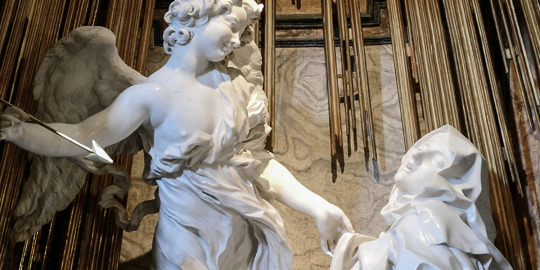
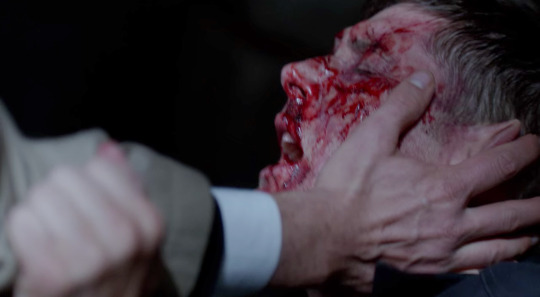
8x17 goodbye stranger / gian lorenzo bernini, ecstasy of saint teresa
3K notes
·
View notes
Text
anyways my biggest proof that dean was trying to get out of heaven is when you watch Dark Side of the Moon and Cas tells him that the way he can get out of the personal heaven they lock him in is to get in his car and follow the road. and what’s the first thing dean does when he gets to “heaven” in 15x20…?
2K notes
·
View notes
Text
lazarus rising is a very green and blue episode
12K notes
·
View notes
Text
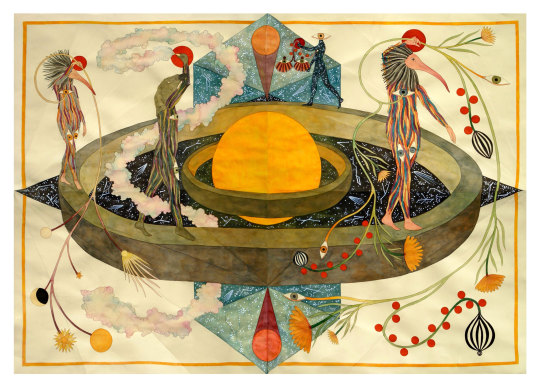


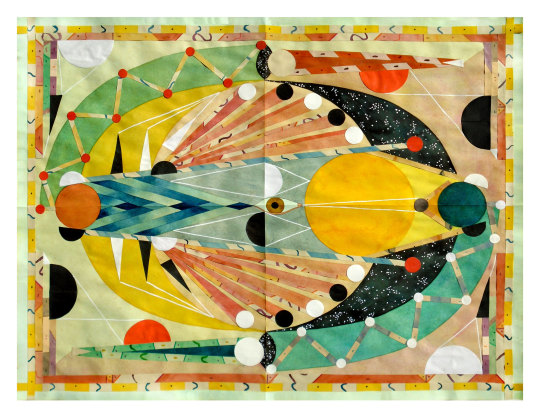

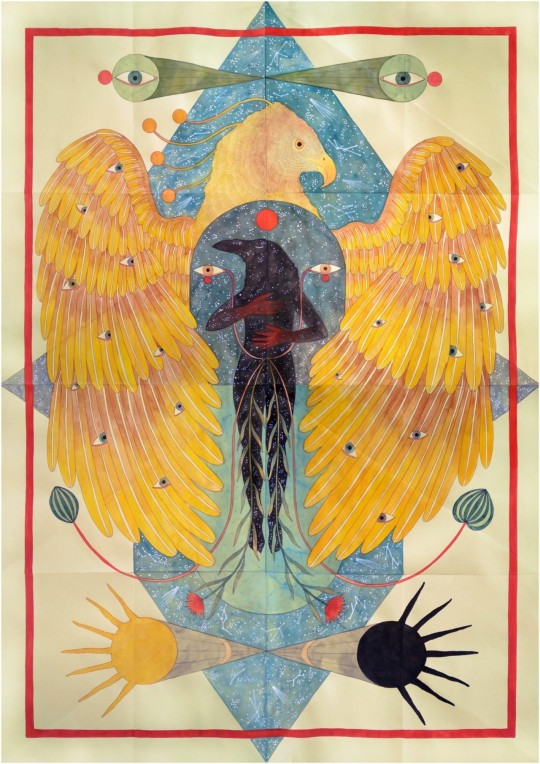

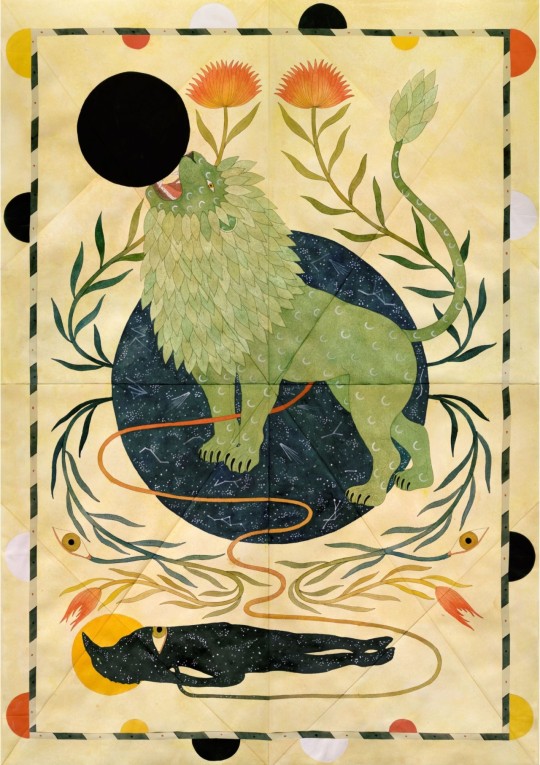
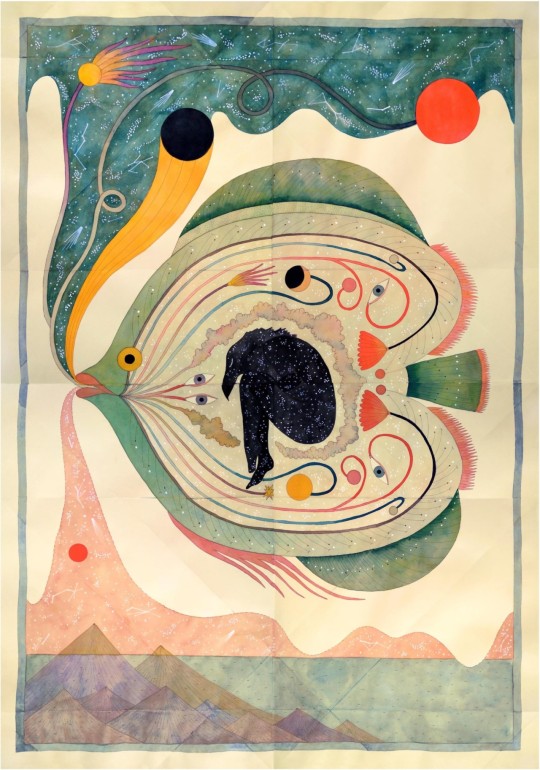
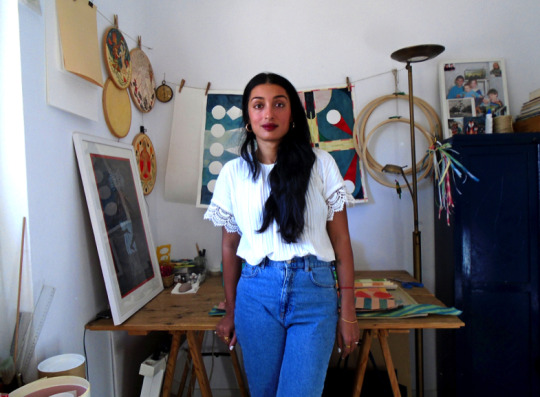
Rithika Merchant is a visual artist from Mumbai, India (b 1986). Her work explores the common thread that runs through different cultures and religions. Similar myths, stories and ideas are shared by cultures all around the world, her paintings explore this concept while also featuring creatures and symbolism that are part of her personal visual vocabulary.
Nature plays a pivotal role in her work and is emphasised by the use of organic shapes and non saturated colours. Her paintings and collages are made using a combination of watercolour and cut paper elements, drawing on 17th century botanical prints and folk art, to create a body of work that is visually linked to our collective pasts.
“I would like the viewer to place themselves in my work, regardless of where they are from,” says Merchant. “The figures in my works are also deliberately free of any race, gender, or ethnicity. I tend to be drawn to symbols that are universally recognizable and not culturally specific—like the eye, the sun, the moon, and botanical imagery in general.”
2K notes
·
View notes
Text
(touching your open wound) damn you’re so wet
14K notes
·
View notes
